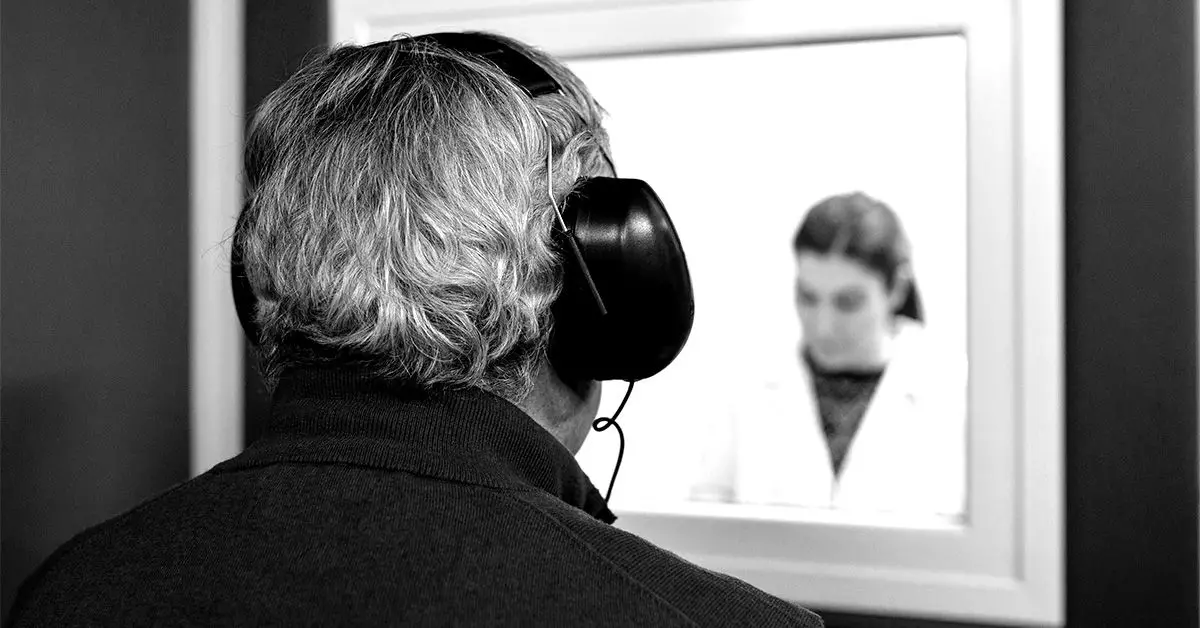Hearing loss has become a pervasive issue in today’s aging population. It’s projected that nearly one-third of individuals over the age of 60 grapple with some level of hearing deterioration. As our societies mature demographically, the implications of hearing impairment extend well beyond mere inconvenience—research indicatesthat they may significantly influence cognitive health. Particularly alarming is the revelation that the risk of developing dementia rises with the severity of hearing loss, creating a concerning context for the design of public health policies.
Dementia Risk: A Dire Connection
Emerging studies highlight that individuals with mild hearing loss see a heightened dementia risk by approximately 16%, while those with moderate impairments face a frightening increment of up to 17%. A research team from Johns Hopkins Bloomberg School of Public Health recently estimated that as much as one-third of dementia cases might be associated with hearing loss—an alarming statistic that amplifies the urgency of addressing auditory health among the elderly. The sheer scale of the issue suggests that failing to intervene could leave a substantial segment of our aging population vulnerable to cognitive decline.
This correlation is supported by epidemiological assessments aiming to capture the broader implications of these findings. While the causative relationship between hearing loss and dementia remains to be definitively established, the prospective cohort study led by Jason R. Smith points to a clear pattern demanding attention. The study not only measures the prevalence of hearing impairment but also closely examines its interplay with cognitive function over many years of follow-up, reinforcing the proposition that early detection could be crucial in mitigating the effects of dementia.
The Neuroscience Behind the Numbers
Correlations do not suffice without understanding the underlying processes at play. Researchers suggest the changes wrought by hearing loss manifest in brain regions that are pivotal to cognition—particularly the frontal cortex, which is closely tied to attention and executive functions, and areas within the temporal lobe responsible for auditory processing. This brain rewiring can detrimentally affect cognitive resilience, leading to conditions that resemble cognitive impairment and, ultimately, dementia.
Steven Allder, a neurologist, sheds light on a less complex explanation: the simple lack of auditory stimulation that hearing loss presents. Such diminishment in auditory input can precipitate social isolation and reduced cognitive engagement, further accelerating cognitive decline. By straining cognitive resources to compensate for lost auditory information, the brain risks depriving itself of the necessary bandwidth to process memories effectively.
The Need for Enhanced Hearing Assessments
In light of these findings, the necessity for routine hearing evaluations becomes glaringly clear. Allder recommends initiating hearing tests around the age of 60 to pro-actively detect significant hearing changes. Without early identification, individuals are increasingly at risk of further cognitive decline as they age. The study echoes this sentiment, arguing that addressing auditory health could be a cornerstone strategy for dementia prevention.
Despite the promising direction of these findings, we still face a major hurdle in determining whether treating hearing loss will concretely mitigate the risk of dementia. The mixed results of the ACHIEVE trial, which identified benefits primarily among high-risk individuals, underline the complexity of this condition. Nevertheless, improvements in communication and quality of life derived from remedial interventions offer compelling reasons for the elderly to discuss their hearing concerns with care providers proactively.
A Collective Approach to Sensory Health
Crucially, hearing loss should not be a solitary consideration. The interplay between various sensory impairments cannot be overlooked; vision loss often accompanies hearing deterioration among older adults. The interplay of these impairments poses an additional layer of risk for cognitive decline, indicating that a holistic approach to sensory health and dementia prevention may be more effective than focusing solely on one aspect.
Smith emphasizes the importance of viewing sensory health in a collective manner to develop more robust dementia prevention strategies. The future of cognitive health relies equally on auditory, visual, and other sensory evaluations that could inform interventions designed for an aging population. Therefore, strategizing public health initiatives that address the multifaceted nature of sensory health is not merely beneficial but essential in combating an impending public health crisis.
The implications of these studies are profound; they suggest that through proactive management of hearing loss, we may just hold the key to an effective strategy against a deeply concerning increase in dementia cases globally.

